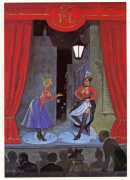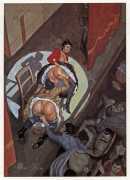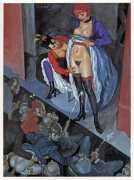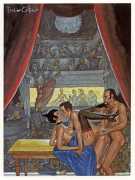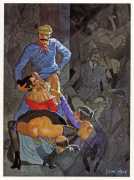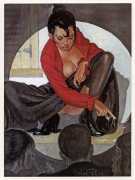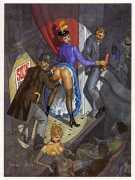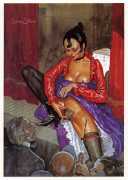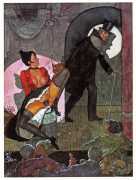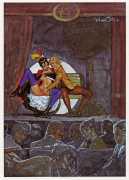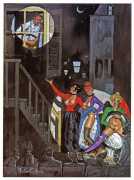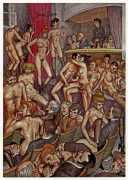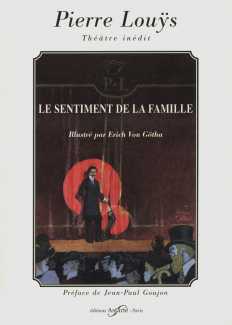 When Pierre Louÿs died in 1925, his heirs discovered an incredible amount of materials (he kept absolutely everything), amongst which were innumerable erotic manuscripts, some completed, most not. That Louÿs had a passion for erotica was a well-known fact, but that there was so much of it was surprising even to those who had known him. In his lifetime Louÿs had been regarded primarily as a classical and literary writer, so the disposal of so much ‘questionable’ material was a real problem.
When Pierre Louÿs died in 1925, his heirs discovered an incredible amount of materials (he kept absolutely everything), amongst which were innumerable erotic manuscripts, some completed, most not. That Louÿs had a passion for erotica was a well-known fact, but that there was so much of it was surprising even to those who had known him. In his lifetime Louÿs had been regarded primarily as a classical and literary writer, so the disposal of so much ‘questionable’ material was a real problem.
In the end Louÿs’ heirs managed to sell most of the erotic material to a bookshop owner called Edmond Bernard, who thus acquired some 800 kilos of manuscripts. Little by little he started dispersing it to interested booksellers and publishers, and in the late 1920s editions of Louÿs’ best-known erotic works started to appear – an elegant Manuel de Civilité, Trois filles de leur mère and Poèsies erotiques, followed by Douze douzains de dialogues and Pybrac.
Yet this a drop in the ocean compared to the incredible amount of erotic manuscripts still unpublished; Le sentiment de la famille (A Sense of Family) is just one of many, a playscript involving a family of theatrical performers specialising in outlandish acts involving the audience in a wide range of sexual experiments. It also includes his trademark inter-family relationships include incest and sister-sister lesbianism. Pierre Louÿs wrote it when he was 21; it can be dated quite precisely through the existence of a similar manuscript belonging to a collection bearing the date 1891. At some point Louÿs decided to work on the 1891 manuscript and copied it out in another notebook, adding modifications. We shall never know why he did not finish it, but this is true of many of his manuscripts; his fertile imagination moved rapidly between projects and completion was often not his primary goal.
The commission from Astarté for twelve von Götha illustrations was what was probably a welcome reprieve from endless comic format work, and the artist rose to the occasion with what many consider to be some of his very best and most imaginative depictions of the transgressive theatrical world of fin-de-siècle Paris. Louÿs and von Götha are a most fortuitous pairing.
Éditions Astarté produced the von Götha edition of Le sentiment de la famille in a limited run of 1,500 copies. As well as the illustrations it includes a facsimile reproduction of Pierre Louÿs’ manuscript, and an introduction by Jean-Paul Goujon.


